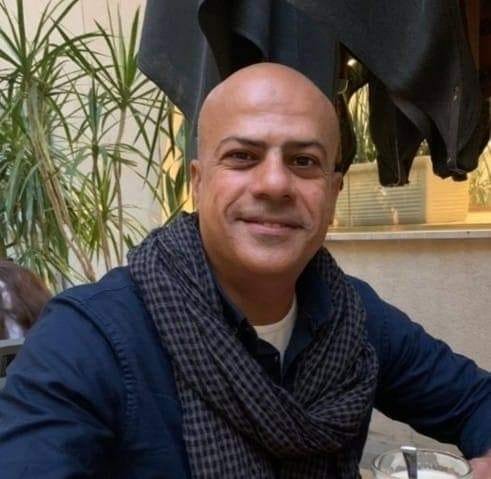Saturday, the news of Ayman Hadhoud’s death trended on social media. As an economic expert, Hadhoud was well-known for his analytic writings, whether social media or press platforms. He worked as a financial chancellor of the Islah and Tanmia Party (Reform and Development) before joining the supreme authority of the party.
On February 5, Hadhoud was arrested from his house days after refusing an unofficial summons from the National Security to attend. There are no clear reasons for the summoning and the arrest, but by the way, a quarrel between Hadhoud and the officer who arrested him was reported by some of Hadhoud’s close friends. Since then, the family has lost contact with him. Later, the family informally knew he was detained in the National Security office of al-Amireya, south of Cairo, out of the law.
Informal contacts through Mohamed Anwar al-Sadat, the head of Islah and Tanmia, and others reassured the family that Hadhoud was well and would be released soon and demanded them not to raise the matter on social media to avoid provoking the National Security. Nevertheless, the enforced disappearance of Hadhoud continued without any communication being allowed between Hadhoud and his family. When his brother went to the National Security, he was warned not to come again, and they refused to receive the clothes and food he brought for his detained brother.
In March, the family informally knew that Hadhoud was transferred to Al-Abasiyya Mental Health Hospital to check his mental status. However, he is in good health and has no history of mental disorders. When the family contacted the hospital to ask about him, the hospital denied his presence. The same hospital got them after days to tell them he had passed away and they should attend to take his body. Then, the family decided to bring the matter to the public. The family believes that Hadhoud had passed away on March 5 after he was tortured to death, and the National Security hid the news to arrange the scene for the declaration of death.
This regime kills us
Although the news of the death of political detainees became usual in Egypt over the past years since the military coup in 2013, the death of Hadhoud raised concerns as a particular case. The deaths used to be of old detainees or detainees with medical disorders, and they were mostly in prisons after sentences or during pretrial detention. In the case of Hadhoud, the death occurred during the enforced disappearance and after suspected torture.
Even in previous cases of torture to death, the victims were not of a high social profile like Hadhoud, which was supposed to provide him with minimal protection. The handheld was graduated from the American University of Cairo and enjoyed a tall stature in the media and political milieu. Paradoxically, he was a leader in the party of Mohamed Anwar al-Sadat, the Egyptian politician and human rights defender who launched an initiative last year to release political detainees through dialogue with the security bodies. However, initial promising successes ended with the clinical death of the industry. Al-Mawqef Al-Masry’s platform on Facebook addressed the case of Hadhoud, asking where the red lines which the Egyptian savage security could stand if they are killing the persons even high-profile.
The murder of Hadhoud remembers the case of Julio Regeni, the Italian researcher whom the Italian prosecution proved was tortured to death by the Egyptian National Security, but the Egyptian authorities insisted on denial. The world and domestic purblind response to the current Egyptian regime’s brutality encouraged the regime to escalate its atrocities to a point the regime became a threat to the life of everyone in Egypt, and the case requires an international and domestic stand to stop him.





Recent Comments